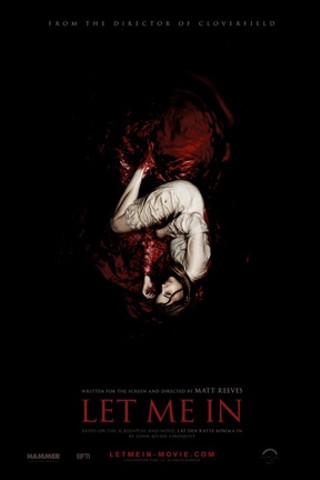If not for remakes, William Shakespeare wouldn't cast such large a shadow over Western drama. After all, without countless interpretations of his plays, would some of his lesser-known works have survived for 400 years?
Adaptations, interpretations, remakes—they're all cut from the same cloth, whether the treatment is of Macbeth or A Nightmare on Elm Street. Without the opportunity to look back for inspiration, Tim Burton or Christopher Nolan might never have helmed Batman. The Wizard of Oz is one of the world's most beloved films; too bad the version everyone calls The Wizard of Oz was not the first, second or even 10th filmed version of that story or its characters.
So just as there is no mystery that Hollywood will remake just about anything, it is equally true that there is no crime in it: Just because there's a hard copy doesn't mean a story can't evolve culturally or chronologically.
The case of adaptation is somewhat different with Let Me In, an Americanized film version of a book that was turned into the fascinating Swedish import Let the Right One In a couple of years ago. There was an immediate outcry in the online film community when the remake was announced, which is understandable, since the online film community includes most of the meager audience generated by the first film when it rolled into theaters in late 2008.
But Let Me In stands on its own, and even though it's not superior to the moody Swedish film, it does exceed it in a couple of ways that are noteworthy as well as promising for the career prospects of writer-director Matt Reeves.
This is not Twilight by any means, even though the human protagonists in both stories are societal outcasts when fanged love intervenes. The vampire in this world is younger: "I'm 12, more or less," reveals Abby (Chloë Moretz from Kick-Ass) in one of her touching but awkward scenes with Owen (The Road's Kodi Smit-McPhee). Beyond her age, however, Abby's needs are the same as any other bloodsucker.
Her thirst is quenched through the hard work of The Father (Richard Jenkins), who ventures out nightly to find a convenient victim. There is no effort to explain where Abby came from or how long she's been a vampire, but how long ago that was or under what circumstances she was transformed isn't the point of the story.
As Abby and Owen grow closer, the boy gains confidence in school—enough to fight back against the trio of bullies who menace him daily. Meanwhile, a string of unidentified and grisly murders in the sleepy nuclear town of Los Alamos, N.M., have the police baffled, but the net is slowly closing on Abby.
Reeves deserves more credit than he will probably get for building his own movie out of the source material and the venerated foreign film. Reeves has turned a lot of the undertones of the story in on themselves; he finds more American ways of presenting the school bullying, the innocent platonic love between Abby and Owen, and certainly the violence. There are also strong tips of the hat to Alfred Hitchcock's Rear Window. The attention to those details helps the film speak—literally and figuratively—a different language to the audience.
The score by Michael Giacchino, an Oscar winner for Up, is haunting and evocative, neatly enveloping a movie that flirts with a kind of baroque horror. And Reeves' composition, in combination with the production design and lighting, is nothing short of stunning, a stark contrast to his Cloverfield, which, by definition, couldn't look as though it were directed at all.
Although Let Me In is tripped up by some cheesy effects and second-act dialogue that is both too spare and too derivative, the film is that rare thing in Hollywood: a remake that cares enough to deserve evaluation on its own merits—no comparison necessary.











